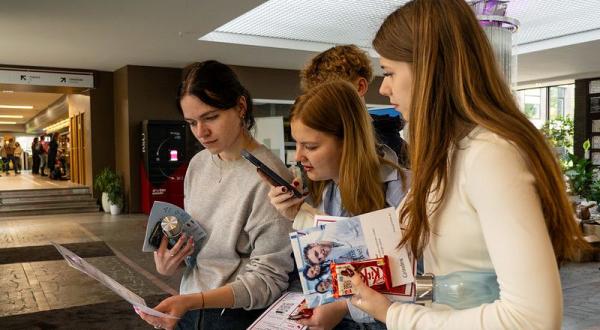RSU Students Come up With Solutions to Reduce Queues and Costs for MRIs in Innovation Competition
A team of five Latvian students participated in the Magnalysis innovation competition Prototron and came up with solutions for reducing magnetic resonance imaging (MRI) queues and costs. The students have already passed the first round and their team is now one of the 58 most successful. They are currently seeking support to develop their idea further.
Nikita Stepanovs, a 2nd-year student at the Faculty of Medicine of Rīga Stradiņš University (RSU):
‘Our ambition is to change the world of radiology. At the moment, we are working on a medical image reconstruction, analysis and storage technology called Magnalysis that could reduce queuing time by up to 50%. This is of vital importance in emergency situations.
This tool was created to solve three current healthcare issues: long queues, high costs and decentralised databases.’
The team is composed of Nikita Stepanovs and Vladislavs Osipenko, students at the RSU Faculty of Medicine, Kārlis Ketners, a programmer studying at the Stockholm School of Economics in Riga, Ēriks Cvetkovs and Artūrs Koņevņikovs who represent the University of Latvia.
The idea behind Magnalysis is to create a cloud-based technology that improves the speed and accuracy of MRI scans.
Unlike traditional methods where the scans are evaluated after an hour-long procedure, Magnalysis uses artificial intelligence to perform real-time image reconstruction and analysis. The system is intended for radiologists and surgeons who need to obtain high-quality MRI scans quickly. Unlike expensive imaging clusters in hospitals, Magnalysis is going to use state-of-the-art convolutional neural networks and provide hospitals with a central database for imaging data that will be accessible from any computer with an internet connection.
The team was advised by diagnostic radiologist Romāns Osipenko: ‘The idea generated by the Magnalysis team is an innovative solution that can significantly improveme the current situation in Latvia where the demand for high-quality diagnostics is ever increasing, while patient queues get proportionally longer.
If we could decrease the time it takes to get an MRI image, it would allow us to increase the number of examinations we could provide at hospitals and at the same time significantly reduce costs. It is nice to know that the digital sector in Latvia is developing and that new medical solutions are being introduced.’
Anyone can help this idea become a reality!
The ten best ideas will compete in the final round of the competition with the winner will be announced on 28 May. The main prize is EUR 35,000 and support programmes provided by various sponsors.






